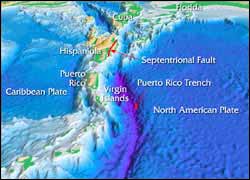Albatrosses are the world’s most threatened family of birds. New research offers the first hope of identifying migration and feeding patterns to reduce their unnecessary slaughter by long-line fisheries. The study is reported in the journal Science, and outlines, for the first time, the year-round habitat of the grey-headed albatross.
Leading author Professor John Croxall from British Antarctic Survey (BAS) said, “By understanding where these birds go when they’re not breeding,
As big fish eat little fish in the Earth’s vast oceans, so too do supermassive black holes gorge on smaller black holes and neutron stars, making themselves more massive in the process. Using sophisticated computer modeling, Penn State scientists have calculated the rate of this black-hole snacking, called “extreme-mass-ratio inspirals.” They expect to see several events per year with the Laser Interferometer Space Antennae (LISA), a joint NASA – European Space Agency mission now in develop
Feasibility Study Shows Access Could Be Given Without Delay
EUMETSAT, the European Organisation for the Exploitation of Meteorological Satellites, will make access to its satellite that covers the Indian Ocean available to the international community for use in constructing a tsunami warning system in the region.
EUMETSAT operates the Meteosat-5 satellite at 63°East as part of its Indian Ocean Data Coverage (IODC) Service.
In a special meeting this week, EUMETS
The January issue of GEOLOGY covers a wide variety of potentially newsworthy subjects. Topics include: new insights into conditions during the Neoproterozoic and Cryogenian; evidence challenging a widely used method for dating rocks; mathematical descriptions of sand ripples that may aid understanding of water flow on planetary surfaces; and evidence questioning whether Akilia Island’s metamorphic rocks really contain Earth’s earliest signs of life. GSA TODAY’s science article focuses

Events rare, but scientists call for public awareness, warning system
A dozen major earthquakes of magnitude 7.0 or greater have occurred in the Caribbean near Puerto Rico, the U.S. Virgin Islands and the island of Hispaniola, shared by Haiti and the Dominican Republic, in the past 500 years, and several have generated tsunamis. The most recent major earthquake, a magnitude 8.1 in 1946, resulted in a tsunami that killed a reported 1,600 people.
With nearly twenty mill
The Japan Agency for Marine-Earth Science and Technology (JAMSTEC) announced that it will conduct an urgent study of the large-scale earthquake which occurred off the coast of Sumatra in Indonesia on December 26, 2004. The study will be the first to observe the actual epicenter of the earthquake that devastated coastal regions in Asian countries along the Indian Ocean coastline.
JAMSTEC is a partner in the Integrated Ocean Drilling Program, an international marine research program that